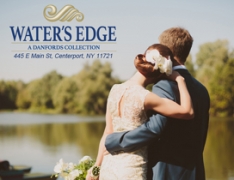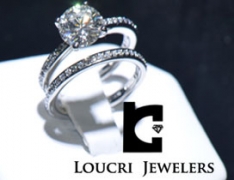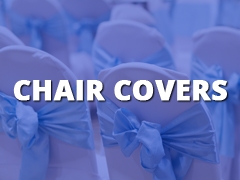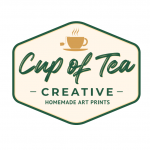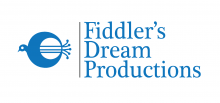Looking for answers to customer support questions? Click Here
ENVIRONMENTAL HEALTH & COSMETIC SAFETY
FAQ: ENVIRONMENTAL HEALTH & COSMETIC SAFETY
You have questions. We have answers. Our list of Frequently Asked Questions regarding Environmental
Health & Cosmetic Safety is growing all the time. If you would like to know more about a particular
issue, please feel free to contact us directly.
Are all chemicals bad?
It's important to note that chemicals across the board are not bad for us. Our body is made up of
chemicals, and so is everything else, including food and water. Toxic chemicals are bad for us.
Toxic means that the chemicals can harm cells or organs, cause neurological damage, and/or alter
important biological systems (like the endocrine system, which regulates our hormones).
Are skincare and makeup products made in the U.S. safe ?
Not necessarily. Many cosmetics companies think of your health and safety in a very short-term
context—they work to avoid acute reactions, like a rash or irritated eyes. While this is itself a
good thing, it isn't the whole story: Very few companies are paying attention to our long-term
health. Right now in the US, it is completely legal for companies to use toxic chemicals in the
products that we put on our bodies every day— even if the ingredients are known to cause cancer or
other health problems. Of course, there are several companies that strive to make safer products.
One of our favorite resources for learning more about a particular product's safety is EWG's Skin
Deep cosmetic database. < www.cosmeticdatabase.com).>
Doesn't the Government make sure products are safe ?
No. The U.S. law that governs the $60 billion cosmetics industry is from 1938, and it does not
provide the Food and Drug Administration (FDA) with the power to ask companies for safety data or
to issue a recall of cosmetics that are found to be unsafe. Chemical companies and cosmetics
manufacturers often lobby to keep this law as it is for fear of how regulatory changes may impact
their business.
Is this concern mostly around products that are imported from other countries?
No. The domestic cosmetics industry has very few regulations. In the U.S., only 11 ingredients are
restricted or banned from cosmetics. The European Union (EU) bans 1,300 ingredients from cosmetics.
Products from the EU and Japan, which also has more health-protective regulation than the U.S., are
often made with fewer harmful or untested ingredients.
Are even small amounts of toxic chemicals in cosmetics a problem?
Yes, because small amounts add up. On average, women use 12 cosmetics a day and men use 6, each
with dozens of ingredients. In addition, we experience environmental exposures to toxic chemicals
through food, air, water, and consumer products.
Even tiny amounts of some chemicals used in everyday products can have huge impacts. Endocrine
disruptors, which are chemicals like BPA, parabens and phthalates that mimic or block hormones, can
have major health impacts because they mirror the function of our real hormones.
How do toxic chemicals enter our bodies?
There are many different routes of exposure. In the case of cosmetics, the route is direct. We
inhale particles from powders and sprays, and we put products onto our skin, lips, hair, and nails.
Transdermal medications such as birth control, antidepressants and nicotine patches are growing in
popularity because it is proven that small doses of active ingredients can have big effect when
absorbed through the skin.
Are you saying that my lipstick or body lotion may give me cancer?
It isn't that simple. The chemicals present in any one cosmetic are unlikely to cause serious harm
but chemicals from the products we wear everyday can accumulate in our bodies may prove harmful
over time. And none of us use just one product. Think about how many products you use in a single
day and how many products you use in a year, and over a lifetime.
I don't wear very much makeup, so I'm probably safe, right?
This is about more than makeup—we're talking about pretty much everything that goes on our bodies
to make us look or feel cleaner or more beautiful: Shampoo, lotion, aftershave, cologne, even baby
shampoo. It is best to try to reduce exposures to toxics wherever possible.
Is it possible for cosmetics to work even without chemicals?
Yes. There are many alterative nontoxic ingredients available on the market today that work just as
well – and often times perform far better – than their commonly used counterparts.
How do you choose your ingredients?
In order to ensure that every Beautycounter product meets our high performance standard without
compromising health, we have established an Ingredient Selection Process [LINK] that is the one of
the strictest in the industry.
Beautycounter is fully committed to supporting research initiatives to learn more about ingredient
safety, and to working with green chemists to find new, safer ingredients and solutions.
What do natural, organic, green and safe mean when it comes to cosmetics?
Legally? Nothing. Due to major loopholes in federal law, cosmetics can be labeled natural,
sustainable, and nearly any other word that comes to mind without containing ingredients that
accurately meet those descriptions. Even products certified as organic can contain as little as 10%
organic ingredients, depending on the certifier. It can be difficult to sort through companies'
claims.
Safe is not a standardized term either. The Food and Drug Administration's Office of Cosmetics and
Colors (the agency that is in charge of regulating all cosmetics) does not define safety. Some
cosmetics companies consider carcinogens, though they are known to cause harm, safe to use in
products because they are legal.
We source dozens of natural and naturally derived ingredients, and some organic ingredients. We
look forward to increasing our organic ingredients over time, always with safety, performance and
affordability in mind.
Are natural ingredients always safe?
Natural and organic are terms relevant to ingredient sourcing (i.e. ingredients used in the product
are botanical, or sourced from an organic farm). Safe refers to any hazards or risks from
ingredients used in the product. For example, formaldehyde (which is a carcinogen, so it is clearly
not safe) is relatively common in body washes and shampoo— even those marketed as natural.
Why do you talk about transparency and ingredient disclosure?
We believe you have the right to know everything about what goes into our products and we make our
labels easy to read. However there are three main obstacles that may prevent you from learning
about what goes into other products on the market:
- "Fragrance" is considered a trade secret, so companies don't have to disclose what it is, but
usually it is a synthetic concoction that may include phthalates and synthetic musks, which are
hormone disruptors, as well as chemicals that are allergens and neurotoxins.
- Some chemicals are not intentionally added to products, but are contaminants (lead in lipstick),
or are present as the result of chemical reactions happening inside the bottle of product
(formaldehyde in shampoo). Companies usually know that these toxins will be in the finished
products, but since they don't have to list them on ingredient labels, they don't.
- When manufacturing companies buy bulk ingredients from ingredient suppliers (aloe vera gel, or
grapefruit seed extract), they are often getting an already- preserved raw ingredient (aloe vera
gel with added phenoxyethanol, or grapefruit seed extract with added methlyparaben). But the end
product does not have to list the preservative that is tagging along so a preservative-free or
paraben-free product may contain those chemicals after all.
What are parabens and phthalates?
Parabens and phthalates are endocrine (or hormone) disruptors, meaning they can alter important
hormone mechanisms in our bodies.
Parabens are a class of preservatives commonly used in all kinds of skincare and makeup products to
prevent the growth of bacteria and mold. There are methylparaben, isobutylparaben, proplyparaben
and others, but essentially, you want to avoid anything ending in -paraben, since they mimic
estrogen and may play a role in triggering cancer and other serious health issues.
Phthalates (pronounced THAL-lates) are plasticizers—they make plastic more pliable (think shower
curtains) and are a huge component of PVC plastic, which is one of the more toxic plastics. In
cosmetics, phthalates are used to make fragrances stick to skin, styling products malleable, and
nail polish bend and stick to the curve of your nail.
They are thought to block signaling pathways for hormones like testosterone, and have been linked
to birth defects. Like parabens, there are many kinds of phthalates (the ones used in cosmetics are
abbreviated as DBP and DEHP), but since they don't often appear on ingredient labels, they can be
tricky to avoid. This is one of the big reasons that Beautycounter advocates for full disclosure of
all ingredients.
It is important to try to avoid ingredients like these and others that are on our Never List
[link], but it is just as important to know what companies are replacing these chemicals with. That
is why Beautycounter puts so much emphasis on the ingredients that we do use, and why we will
always tell you what's in our products and why it's there.
What can I do today?
Join Beautycounter. Our goal is to reach as many women as possible and empower them with the
knowledge they need to make better choices for themselves and their families.
We're counting on you to help us spread the word. There are many ways to get involved. Become
a Member or a Consultant and share our products with the people you care about. Sign up for our
newsletter, follow us Twitter, and like us Facebook to stay connected and help us move the needle
in the right direction. Be a part Beautycounter in any way that works for you.
END
You have questions. We have answers. Our list of Frequently Asked Questions regarding Environmental
Health & Cosmetic Safety is growing all the time. If you would like to know more about a particular
issue, please feel free to contact us directly.
Are all chemicals bad?
It's important to note that chemicals across the board are not bad for us. Our body is made up of
chemicals, and so is everything else, including food and water. Toxic chemicals are bad for us.
Toxic means that the chemicals can harm cells or organs, cause neurological damage, and/or alter
important biological systems (like the endocrine system, which regulates our hormones).
Are skincare and makeup products made in the U.S. safe ?
Not necessarily. Many cosmetics companies think of your health and safety in a very short-term
context—they work to avoid acute reactions, like a rash or irritated eyes. While this is itself a
good thing, it isn't the whole story: Very few companies are paying attention to our long-term
health. Right now in the US, it is completely legal for companies to use toxic chemicals in the
products that we put on our bodies every day— even if the ingredients are known to cause cancer or
other health problems. Of course, there are several companies that strive to make safer products.
One of our favorite resources for learning more about a particular product's safety is EWG's Skin
Deep cosmetic database. < www.cosmeticdatabase.com).>
Doesn't the Government make sure products are safe ?
No. The U.S. law that governs the $60 billion cosmetics industry is from 1938, and it does not
provide the Food and Drug Administration (FDA) with the power to ask companies for safety data or
to issue a recall of cosmetics that are found to be unsafe. Chemical companies and cosmetics
manufacturers often lobby to keep this law as it is for fear of how regulatory changes may impact
their business.
Is this concern mostly around products that are imported from other countries?
No. The domestic cosmetics industry has very few regulations. In the U.S., only 11 ingredients are
restricted or banned from cosmetics. The European Union (EU) bans 1,300 ingredients from cosmetics.
Products from the EU and Japan, which also has more health-protective regulation than the U.S., are
often made with fewer harmful or untested ingredients.
Are even small amounts of toxic chemicals in cosmetics a problem?
Yes, because small amounts add up. On average, women use 12 cosmetics a day and men use 6, each
with dozens of ingredients. In addition, we experience environmental exposures to toxic chemicals
through food, air, water, and consumer products.
Even tiny amounts of some chemicals used in everyday products can have huge impacts. Endocrine
disruptors, which are chemicals like BPA, parabens and phthalates that mimic or block hormones, can
have major health impacts because they mirror the function of our real hormones.
How do toxic chemicals enter our bodies?
There are many different routes of exposure. In the case of cosmetics, the route is direct. We
inhale particles from powders and sprays, and we put products onto our skin, lips, hair, and nails.
Transdermal medications such as birth control, antidepressants and nicotine patches are growing in
popularity because it is proven that small doses of active ingredients can have big effect when
absorbed through the skin.
Are you saying that my lipstick or body lotion may give me cancer?
It isn't that simple. The chemicals present in any one cosmetic are unlikely to cause serious harm
but chemicals from the products we wear everyday can accumulate in our bodies may prove harmful
over time. And none of us use just one product. Think about how many products you use in a single
day and how many products you use in a year, and over a lifetime.
I don't wear very much makeup, so I'm probably safe, right?
This is about more than makeup—we're talking about pretty much everything that goes on our bodies
to make us look or feel cleaner or more beautiful: Shampoo, lotion, aftershave, cologne, even baby
shampoo. It is best to try to reduce exposures to toxics wherever possible.
Is it possible for cosmetics to work even without chemicals?
Yes. There are many alterative nontoxic ingredients available on the market today that work just as
well – and often times perform far better – than their commonly used counterparts.
How do you choose your ingredients?
In order to ensure that every Beautycounter product meets our high performance standard without
compromising health, we have established an Ingredient Selection Process [LINK] that is the one of
the strictest in the industry.
Beautycounter is fully committed to supporting research initiatives to learn more about ingredient
safety, and to working with green chemists to find new, safer ingredients and solutions.
What do natural, organic, green and safe mean when it comes to cosmetics?
Legally? Nothing. Due to major loopholes in federal law, cosmetics can be labeled natural,
sustainable, and nearly any other word that comes to mind without containing ingredients that
accurately meet those descriptions. Even products certified as organic can contain as little as 10%
organic ingredients, depending on the certifier. It can be difficult to sort through companies'
claims.
Safe is not a standardized term either. The Food and Drug Administration's Office of Cosmetics and
Colors (the agency that is in charge of regulating all cosmetics) does not define safety. Some
cosmetics companies consider carcinogens, though they are known to cause harm, safe to use in
products because they are legal.
We source dozens of natural and naturally derived ingredients, and some organic ingredients. We
look forward to increasing our organic ingredients over time, always with safety, performance and
affordability in mind.
Are natural ingredients always safe?
Natural and organic are terms relevant to ingredient sourcing (i.e. ingredients used in the product
are botanical, or sourced from an organic farm). Safe refers to any hazards or risks from
ingredients used in the product. For example, formaldehyde (which is a carcinogen, so it is clearly
not safe) is relatively common in body washes and shampoo— even those marketed as natural.
Why do you talk about transparency and ingredient disclosure?
We believe you have the right to know everything about what goes into our products and we make our
labels easy to read. However there are three main obstacles that may prevent you from learning
about what goes into other products on the market:
- "Fragrance" is considered a trade secret, so companies don't have to disclose what it is, but
usually it is a synthetic concoction that may include phthalates and synthetic musks, which are
hormone disruptors, as well as chemicals that are allergens and neurotoxins.
- Some chemicals are not intentionally added to products, but are contaminants (lead in lipstick),
or are present as the result of chemical reactions happening inside the bottle of product
(formaldehyde in shampoo). Companies usually know that these toxins will be in the finished
products, but since they don't have to list them on ingredient labels, they don't.
- When manufacturing companies buy bulk ingredients from ingredient suppliers (aloe vera gel, or
grapefruit seed extract), they are often getting an already- preserved raw ingredient (aloe vera
gel with added phenoxyethanol, or grapefruit seed extract with added methlyparaben). But the end
product does not have to list the preservative that is tagging along so a preservative-free or
paraben-free product may contain those chemicals after all.
What are parabens and phthalates?
Parabens and phthalates are endocrine (or hormone) disruptors, meaning they can alter important
hormone mechanisms in our bodies.
Parabens are a class of preservatives commonly used in all kinds of skincare and makeup products to
prevent the growth of bacteria and mold. There are methylparaben, isobutylparaben, proplyparaben
and others, but essentially, you want to avoid anything ending in -paraben, since they mimic
estrogen and may play a role in triggering cancer and other serious health issues.
Phthalates (pronounced THAL-lates) are plasticizers—they make plastic more pliable (think shower
curtains) and are a huge component of PVC plastic, which is one of the more toxic plastics. In
cosmetics, phthalates are used to make fragrances stick to skin, styling products malleable, and
nail polish bend and stick to the curve of your nail.
They are thought to block signaling pathways for hormones like testosterone, and have been linked
to birth defects. Like parabens, there are many kinds of phthalates (the ones used in cosmetics are
abbreviated as DBP and DEHP), but since they don't often appear on ingredient labels, they can be
tricky to avoid. This is one of the big reasons that Beautycounter advocates for full disclosure of
all ingredients.
It is important to try to avoid ingredients like these and others that are on our Never List
[link], but it is just as important to know what companies are replacing these chemicals with. That
is why Beautycounter puts so much emphasis on the ingredients that we do use, and why we will
always tell you what's in our products and why it's there.
What can I do today?
Join Beautycounter. Our goal is to reach as many women as possible and empower them with the
knowledge they need to make better choices for themselves and their families.
We're counting on you to help us spread the word. There are many ways to get involved. Become
a Member or a Consultant and share our products with the people you care about. Sign up for our
newsletter, follow us Twitter, and like us Facebook to stay connected and help us move the needle
in the right direction. Be a part Beautycounter in any way that works for you.
END
Welcome New Vendors
- The Barn At Old Bethpage Discover the charm a...
- Jack & Rose Jack & Rose Floral D...
- Tellers: An American Chophouse Tellers: An American...
- Cup Of Tea Creative Unique Wedding Gifts...
- Speeches for Milestones The Big Day Has Ar...
- Long Island Bridal Expo Connecting Brides & ...
- 1 More Rep 1 More Rep offers Ap...
- Bellport Inn The Bellport Inn –...
- Snapphotto Snapphotto is one of...
- Fiddlers Dream Music Asher began classica...
- Havana Central Featuring real Cuban...
- Primerica Nelida Flynn Founded in 1977 on t...
X
Sign In
Sign in with Social Networking
By Signing in with Facebook or Google, You accept LIWedding Terms of use and Privacy Policy
X
Create an Account
Sign up with Social Networking
By Signing up with Facebook or Google, You accept LIWedding Terms of use and Privacy Policy
Already have an Account ? Sign In
X





